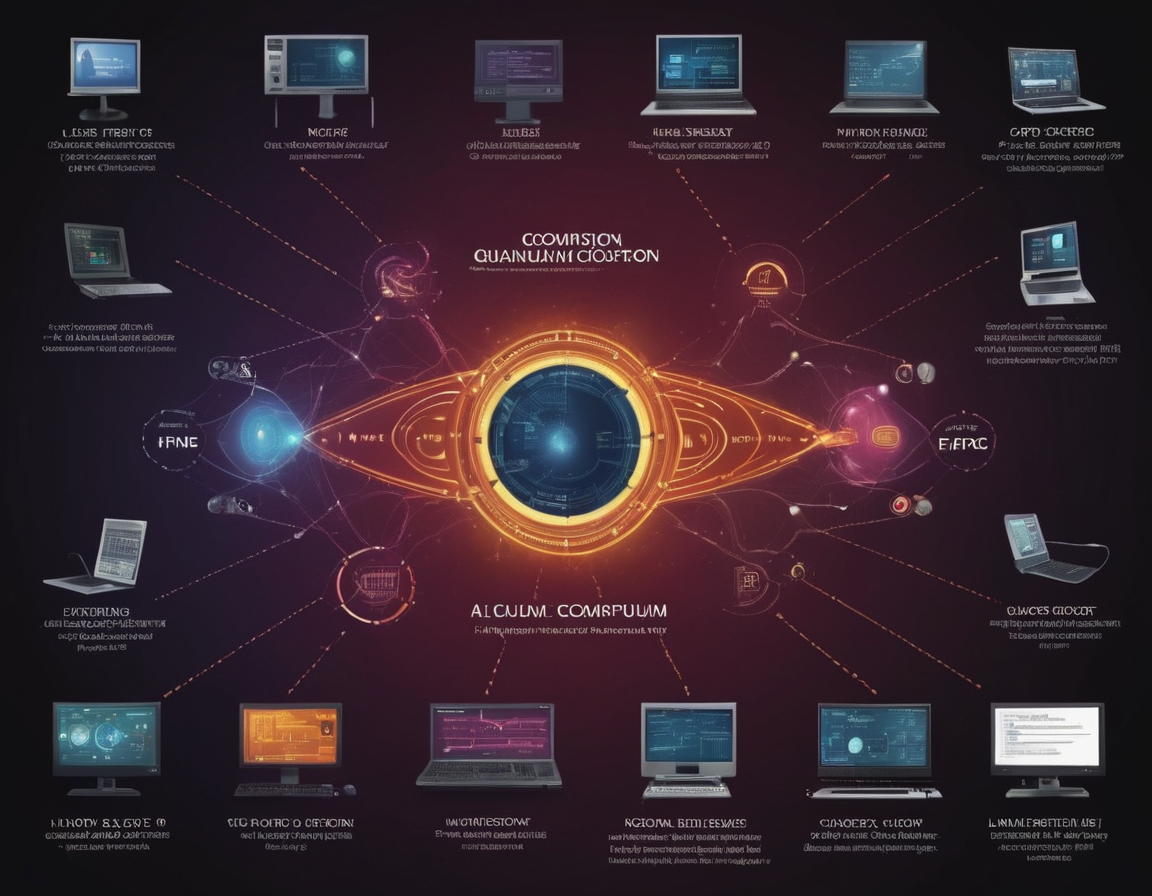Decoding the Mysteries of Quantum Computing: A Beginner’s Guide
Unraveling the Quantum Realm: A Layman’s Introduction to Quantum Computing
In an era where conventional computers are reaching the physical limits of their capabilities, a revolutionary new player is entering the tech arena: Quantum Computing. With the potential to redefine problem-solving and data analysis, quantum computing promises to be a game-changer in fields ranging from cryptography to medicine. But what exactly is quantum computing, and why is it so groundbreaking? Let’s dive in.
Understanding the Quantum Basics
At the heart of quantum computing lies the principles of quantum mechanics, the mysterious and often counterintuitive realm of subatomic particles. Unlike classical bits that represent data as either 0s or 1s, quantum computing uses ‘qubits’ to embody data. The magic of qubits stems from their ability to exist in multiple states simultaneously thanks to a phenomenon known as ‘superposition.’ This and another principle named ‘entanglement’ provide quantum computers with their superior calculating prowess.
The Quantum Leap in Computing
Why is quantum computing heralded as a significant leap forward? Imagine solving complex problems that would take current supercomputers millennia to compute – quantum computers could potentially do this in mere minutes or seconds. Their computational speed and power could lead to breakthroughs in drug discovery, optimize logistics, and even crack the most robust encryption codes that protect our digital lives today.

Pioneers of the Quantum World
Global tech giants and startups alike are racing to harness quantum computing. Companies such as IBM, Google, and Honeywell are developing quantum processors and systems designed to harness these quantum advantages. A notable milestone in this quest was Google’s announcement of quantum supremacy in 2019, where their quantum computer solved a problem deemed impossible for traditional computers – a testament to the potential that this technology holds.
Challenges on the Quantum Path
Despite these leaps, quantum computing is not without its challenges. Quantum computers require highly specialized conditions to operate—near absolute zero temperature and an environment that shields them from even the slightest electromagnetic disturbances. These conditions are necessary to preserve the fragile states of qubits to prevent ‘quantum decoherence.’ Moreover, making quantum computers user-friendly and widely accessible remains a colossal task for scientists and engineers.
Quantum Computing: A Future Nearing Reality
As R&D surges forward, quantum computing is transitioning from a theoretical concept to tangible technology. Cutting-edge applications are being envisaged that could revolutionize industries. However, with these advancements come complex ethical and security considerations. It is imperative that as we enter this new quantum era, we do so responsibly, ensuring security and fairness in access and implementations.
While the quantum realm may seem like science fiction, its implications are abundantly real and approaching faster than we might think. The quantum computing revolution is on the horizon, promising to unlock a future filled with possibilities that today exist only in the realms of our imagination.
Join the Quantum Conversation
Interested in being a part of the future today? Explore more on quantum computing, engage with community forums, and perhaps, even participate in quantum computing simulations available online. The future is quantum, and it’s an exciting time to be alive and witness this incredible journey.

Stay tuned for more updates as we continue to delve deeper into the world of quantum computing and its myriad applications that could redefine the technological landscape.






